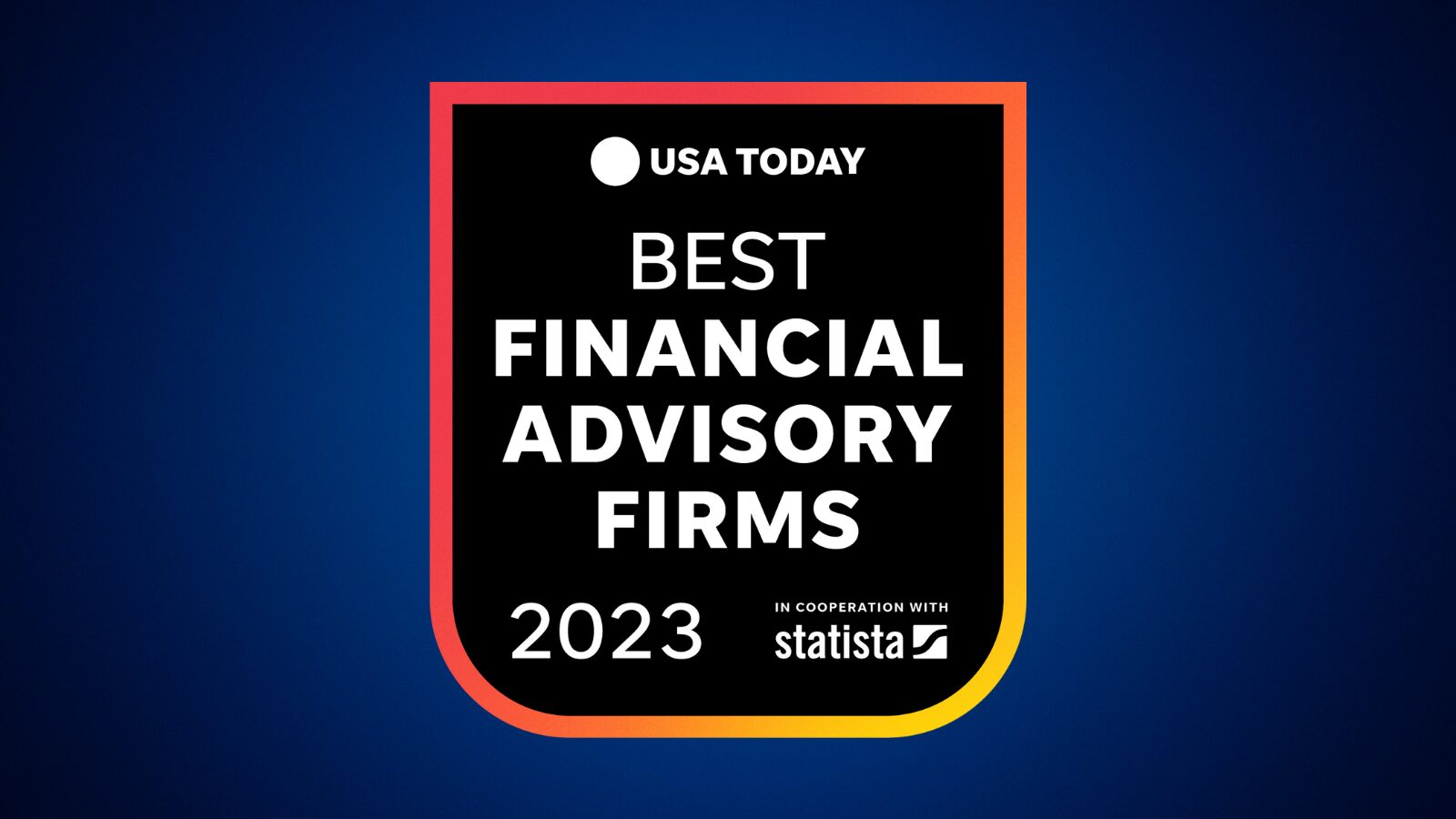FIN News: NEPC Enhances DEI Rating System as Diverse Manager Usage Grows
NEPC was featured in a recent FIN News article which covered the launch of our new DEI Rating System which was announced in our 2022 DEI Progress – Part 1. View the article on FIN News’ site here.
Investment consultant NEPC will release a new Diversity, Equity and Inclusion rating system for investment managers, the firm announced today.
The new system comes “in response to demand from our institutional clients, who have continued to press us for insight into how investment managers think about – and act upon their diversity goals,” the firm said in its third annual DEI Progress Report issued today.
. . .
“From the outset, our goal has been to help lead change in the investment industry by emphasizing the value of transparency and metric-driven policy when it comes to DEI. To do that, we’ve remained committed to learning, growing, and thinking about diversity as an identifier of opportunity and risk, not only within our walls but externally as well, and as a differentiator to better serve our clients,” said Will Forde, a partner at NEPC and co-chair of the firm’s diverse manager committee, in a statement. “With well over half of our clients using Diverse Managers, we recognize the progress that we’ve made when thinking about engagement with diverse-owned and -led firms, but recognize the work that needs to be done in order to maintain and improve upon those efforts.”
401k Specialist Magazine: NEPC Finds Over Half of Clients Use Diverse Managers
NEPC was recently featured in a 401k Specialist Magazine article that dug into our 2022 DEI Progress – Part 1 which found that more clients are implementing DEI strategies and working with diverse managers. View the article on 401k Specialist Magazine’s site here.
Client exposure to diverse strategies is climbing, finds a new report by investment consultant and outsourced chief investment officer (OCIO) provider NEPC.
Its latest report, the NEPC found that 59% of its clients use diverse managers, with diverse firms currently investing $40.4 billion in client assets and managing 182 client strategies. Currently, NEPC serves over 400 retailer clients and $1.4 trillion in total assets.
. . .
“As the conversation around increasing diversity in the investment space continues to evolve, so must our goals and how we’re thinking about DEI standards,” said Mike Manning, managing partner of NEPC, in a statement. “We are proud of what we’ve accomplished thus far, but NEPC is aware of the work that remains, and is committed to identifying meaningful ways to continue engaging with diverse-owned and -led firms.”
Click here to continue reading the full 401k Specialist Magazine article.
Pensions & Investments: NEPC to offer DEI Ratings System for Money Managers
NEPC was featured in a recent Pensions & Investments article delving into our 2022 DEI Progress – Part 1 and highlighted our new DEI Rating System. View the article on Pensions & Investments’ site here.
NEPC will launch a diversity, equity and inclusion rating system this week for the money management firms the Boston-based investment consultant and outsourced CIO provider vets on behalf of institutional clients.
. . .
“It can be paralyzing trying to look at the entire industry and create an industry standard across all different principles — asset owners, investment consultants, asset managers,” noted Will Forde, partner and co-chair of NEPC’s diverse manager committee.
Instead, “we needed to get our own house in order and we’re starting inside the walls of NEPC and our client base,” said Mr. Forde.
. . .
Mr. Forde said NEPC’s new ratings system could contribute to further progress on that score. “One of the benefits of the DEI ratings, moving forward … is that it puts the power of information back into the hands of clients,” he said.
“We have a myriad of different clients, we have a myriad of different opinions on how to incorporate DEI and other things into their investment process. DEI ratings give them the opportunity to look at their entire portfolio of managers, for us to provide our insights directly to … empower them to say, ‘this is important to us in this way’ and craft it how they see fit, or how they don’t, and so I think the DEI ratings … is really additive in this type of environment,” he said.
Click here to continue reading the full Pensions & Investments article.
NEPC 2022 DEI Progress Report: Raising the Bar for the Investment Industry
BOSTON–(BUSINESS WIRE)– NEPC, a leading research-driven investment consultant and OCIO provider with $1.4 trillion in assets under advisement, today published its third annual Diversity, Equity, and Inclusion (DEI) Progress Report, a report that aims to uncover the investment-oriented benefits of diversity, supporting NEPC’s goal of being the investment industry’s most intentional and data-driven DEI leader.
This year’s report highlights the firm’s steady progress toward NEPC’s Diverse Manager Policy goals, which were initially set in 2019. This latest report is a direct reflection of NEPC’s view that diversity, equity, and inclusion drive sustainable success for clients, employees, and communities. Diversity helps unlock a wider range of talent and ideas, ultimately ensuring that investment teams are able to meet and achieve their investment goals.
“From the outset, our goal has been to help lead change in the investment industry by emphasizing the value of transparency and metric-driven policy when it comes to DEI. To do that, we’ve remained committed to learning, growing, and thinking about diversity as an identifier of opportunity and risk, not only within our walls but externally as well, and as a differentiator to better serve our clients, ” said Will Forde, Partner, Co-Chair, Diverse Manager Committee. “With well over half of our clients using Diverse Managers, we recognize the progress that we’ve made when thinking about engagement with diverse-owned and -led firms, but recognize the work that needs to be done in order to maintain and improve upon those efforts.”
NEPC’s 2022 DEI Progress Report provides insight into the firm’s DEI initiatives from a marketplace perspective. Listed below are highlights from this year’s report:
Client Exposure to Diverse Strategies
- 59% of NEPC clients use Diverse Manager(s)
- $40.4B of client’s assets with Diverse Firms
- 182 client strategies managed by Diverse Firms
Increasing Diversity in NEPC’s Recommended Strategies
- Driven by the Explorer Program, a platform to identify and engage with diverse-owned and -led investment management firms that are not currently 1- or 2-rated by NEPC, the centerpiece of NEPC’s DEI program is the goal of achieving 15% Diverse Manager representation by 2024.
- NEPC achieved its initial goal of 10% Diverse Manager exposure by 2022 for OCIO accounts and is on track to achieve 15% Diverse Manager exposure by 2024.
- NEPC conducted 206 interactions with Diverse Management firms in 2022, more than 3X the interactions in 2019.
“As the conversation around increasing diversity in the investment space continues to evolve, so must our goals and how we’re thinking about DEI standards, said Mike Manning, Managing Partner. “We are proud of what we’ve accomplished thus far, but NEPC is aware of the work that remains, and is committed to identifying meaningful ways to continue engaging with diverse-owned and -led firms.”
For more information about NEPC’s sustainable solutions like its Impact Investing Committee and Diverse Manager Committee, click here. To download the full results of NEPC’s 2022 DEI Progress Report, click here.
ABOUT NEPC, LLC
NEPC is an independent investment consultant, private wealth advisor, and OCIO provider serving over 400 retainer clients and $1.4 trillion in total assets. Combining a proprietary research team dedicated to the long-term challenges facing investors with our unique client-centric model, NEPC builds forward-looking investment portfolios for institutional investors and ultra-high-net worth individuals. To learn more about NEPC, visit nepc.com.
Contact:
Laura Nascimento
[email protected]
USA Today: Need a Financial Advisor? These are the Top Firms to Consult.
We are thrilled to share that NEPC has been named on USA Today’s inaugural list of Best Financial Advisory Firms. NEPC was one of only 500 firms selected from over 32,000 firms in the U.S., based on the growth of AUM over the short and long term, and recommendations from clients and peers. View the full article and list on USA Today’s website here.
If you need help deciding what to do with your money in a volatile stock market and uncertain economy, the choices can be bewildering.
Financial adviser. Investment adviser. Broker. Financial planner. Certified financial planner.
An inaugural list of the Best Financial Advisory Firms of 2023, developed for USA TODAY by market research firm Statista, attempts to simplify the jumble.
FIN News: Opportunities to Improve Endowment Returns May Come As Private Markets Reset: Consultants
NEPC’s latest Insight “How Should The NACUBO-TIAA Report Impact Endowment Finances?” was recently covered in an article by FIN News to discuss our findings. View the article on FIN News’ site here.
The current state of private markets can create opportunities for smaller endowments to incorporate private equity into their portfolios, according to investment consultant NEPC.
“Disruption in private markets may open up opportunities to endowments. In our view, private markets will continue to reset throughout 2023, and lower valuations may provide attractive entry points,” the firm said, in a recent insight post that noted the financial success of larger higher education endowments is mainly due to private equity market exposure.
. . .
While disruptions to private markets such as the recent bank closures have led to uncertainty, NEPC does not feel there is risk in the banking system but rather opportunities that may open up to endowments.
“Overall, banks are well capitalized. We think the recent closing of Silvergate Bank, Signature Bank and Silicon Valley Bank will prove to be isolated liquidity events that are largely the result of asset-liability mismatches relative to the deposit profile for each bank,” NEPC said.
“Historically, recession- and recovery-era vintage years have created some of the best opportunities to deploy capital to private equity,” according to the firm.
NEPC Expands Public Funds Team, Hires Former Wilshire Advisors Managing Director
BOSTON–(BUSINESS WIRE)– NEPC, a leading research-driven investment consultant and OCIO provider with $1.4 trillion in assets under advisement, today announced that Rose Dean, CFA, has joined the firm as Senior Consultant and Principal, effective April 3, 2023. This announcement is part of NEPC’s strategic expansion of its West Coast and Midwest presence.
With over 21 years of industry experience, Dean advised state-level public pension funds, foundations, and corporate DB/DC plans with assets totaling over $600 billion as a general consultant. Dean brings deep investment acumen and experience to her new role and will report directly to Kevin Leonard, Partner, and leader of NEPC’s Public Funds Team.
“We are thrilled to have Rose join our team,” said Leonard. “As we continue to help clients navigate a complicated investment landscape, I know that Rose’s institutional experience and ability to build strong client relationships will help us continue building enduring and innovative investment programs tailored to our clients’ unique financial goals and constraints.”
Dean joins NEPC from Wilshire Advisors, where she most recently served as Managing Director. In that role, she led multiple asset owner relationships for non-discretionary and discretionary investment portfolio advisory services. She also served on Wilshire’s Fixed Income/LDI, Private Equity/Credit, and Diverse‐Owned Manager Committees. Prior to joining Wilshire, Dean ran a start‐up alternative investment consulting business, advising on opportunities focused on private credit and asset‐based loan portfolios. Her experience also includes trading fixed income at Citigroup and conducting hedge fund manager research at Harcourt.
“I’m excited to join an industry leader such as NEPC, and to work alongside a dynamic team to strengthen our West Coast and Midwest presence as we continue to build on our already strong foundation.”
To learn more about NEPC, click here.
ABOUT NEPC, LLC
NEPC is an independent investment consultant, private wealth advisor, and OCIO provider serving over 400 retainer clients and $1.4 trillion in total assets. Combining a proprietary research team dedicated to the long-term challenges facing investors with our unique client-centric model, NEPC builds forward-looking investment portfolios for institutional investors and ultra-high-net worth individuals. To learn more about NEPC, visit nepc.com.
Contact:
Laura Nascimento
[email protected]
Yahoo Finance: MPowered Capital Closes First Fund to Invest in Diverse Talent in Private Alternative Markets
Congratulations to MPowered Capital for closing its first fund to invest in diverse talent in private alternative markets. At NEPC, we’re passionate about promoting diversity in the industry and are proud to join forces with MPowered in this mission. As Kristine Pelletier notes, we’ve seen firsthand how institutionalized 360-degree diversity programs lead to better results for clients, which is why we’re impressed with MPowered’s holistic approach and tailored structures for working with diverse talent. We’re thrilled to continue to support novel solutions in the industry and shifting the talent pool towards inclusivity. View the announcement on Yahoo Finance’s site here.
MINNEAPOLIS, April 04, 2023 (GLOBE NEWSWIRE) — MPowered Capital (“MPowered”) today announced the final close of MPowered Capital Access Fund I (“the Fund”) with $110 million in committed capital. The Fund, which received support from institutional investors, including foundations, family offices, and the consultant community, seeks to generate superior risk-adjusted returns through investments in diverse talent in private alternatives.
As of the final close, the Fund has invested in or alongside 11 diverse investment managers, including L2 Point Management, Sidereal Capital, Kinzie Capital, and Collide Capital.
. . .
Kristine Pelletier, Partner at NEPC, said: “NEPC is proud to invest in MPowered Capital Access Fund I and join MPowered in our collective efforts to increase access to diverse talent in all its forms. At NEPC, we’ve seen firsthand how institutionalized 360-degree diversity programs can lead to better results for our clients, which is why we were so impressed by MPowered’s holistic approach to working with diverse talent and the innovative, tailored structures they employ. We are excited to see such novel solutions coming to the marketplace focused on shifting the profile of the industry’s talent pool and increasing access points to the investment management industry.”
Read the full article on Yahoo Finance’s website here.
CNBC: Treasury Yields Waver as Volatile Month for the Bond Market Continues
NEPC’s Phillip Nelson was quoted in a recent CNBC article to discuss the performance of the bond market today. View the announcement on CNBC’s site here.
U.S. Treasury yields wavered early Wednesday as investors remained cautiously optimistic that recent banking turmoil has settled.
. . .
“Markets have been processing a flurry of news from the global banking sector in recent weeks, along with what the latest round of interest rate hikes from the U.S., U.K. and EU mean for those economies.
“The shift to higher interest rates that we’ve seen over the last week reflects the concerns around the banking system subsiding – and also an increased awareness that the Fed is unlikely to be cutting rates in 2023,” said Phillip Nelson, director of asset allocation research at NEPC.”
Read the full article on CNBC’s website here.
FundFire: Matthews Asia Grapples with Steep Asset Decline, Turnover
NEPC’s Phillip Nelson was quoted in a recent FundFire article emphasizing that investment consultants and asset managers are regaining confidence in emerging markets and China. View the article on FundFire’s site here.
Matthews Asia is wrestling with several years of persistent asset declines and staff turnover.
The emerging-market specialist, which is known for Asia-focused strategies, had $25.2 billion in firmwide discretionary assets at the end of 2021, according to its most recent Form ADV filing. The firm listed total assets as $13.2 billion at the end of February, a roughly 50% decline.
. . .
“Investment consultants and asset managers are regaining confidence in emerging markets and China, in particular, which could benefit Matthews. NEPC made the reopening of China its 2023 theme.
“When we look at the last few months of 2022, we saw this big bounce in recovery,” said Phil Nelson, NEPC’s head of asset allocation, describing the rebound as “almost V-shaped”.
To seize that momentum, Matthews is emphasizing its 31-year history as an investor in the region and its recent diversification into emerging markets outside Asia.”
Read the full article on FundFire’s website here.









